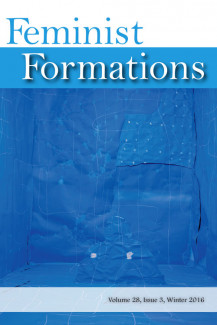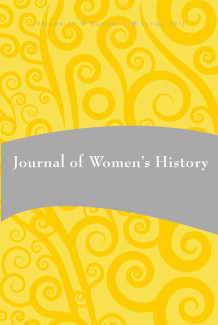
Johns Hopkins UniversityEst. 1876
America’s First Research University
Journals Celebrates Women's History Month

A quick look at our collection of journals would show two obvious candidates during Women’s History Month—the Journal of Women's History and Feminist Formations.
These two journals both feature outstanding editorial teams helping to present leading scholarship in many areas of women's studies.

The journal editorial office recently relocated to the Oregon State University after successful stints at the University of Arizona and University of Minnesota. Patti Duncan leads the editorial team at OSU.
With a focus on women's, gender, and sexuality studies, Feminist Formations also features Poesia, a section in each issue dedicated to providing a space for creative commentary on important issues within the field. The next issue of the journal will focus on “Homefront Frontlines,” offering analyses of gender and militarism.

That includes the 2013 issue on "gendered meanings of women’s politics, art, and faith" from the mid-1800s to the 1940s as well as the most recent issue on how the involvement of women in science and political activism has both opened and faced further restriction in recent history.
That issue also discussed the spirit of collaboration that creates the important relationships which sustain the work of feminist collaborative networks, an important aspect of their work, according to JWH editors Jean Quataert and Elisa Camiscioli.
The JHU Press will represent both of these journals at the Berkshire Conference on the History of Women, scheduled for June 1-4 at Hofstra University.
While the two journals show JHUP's commitment to women's studies, the larger influence comes from the fact that women occupy the top editorial positions at more than half of our 86 journals.
From American studies to the medical humanities, from literary criticism to theatre studies, from Jewish studies to children's literature, our journals and their readers only benefit from the diverse voices provided by our accomplished female editors and authors.
The first weeklong celebration of women's history took place in 1979 when the Education Task Force of the Sonoma County (California) Commission on the Status of Women brought lessons of the contributions of women to classrooms in that region.
As we approach the 40th anniversary of that "Women's History Week," we support and celebrate the efforts of the women affiliated with our journals in creating new history through their contributions to scholarship in their fields.
